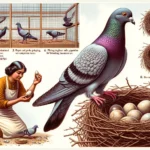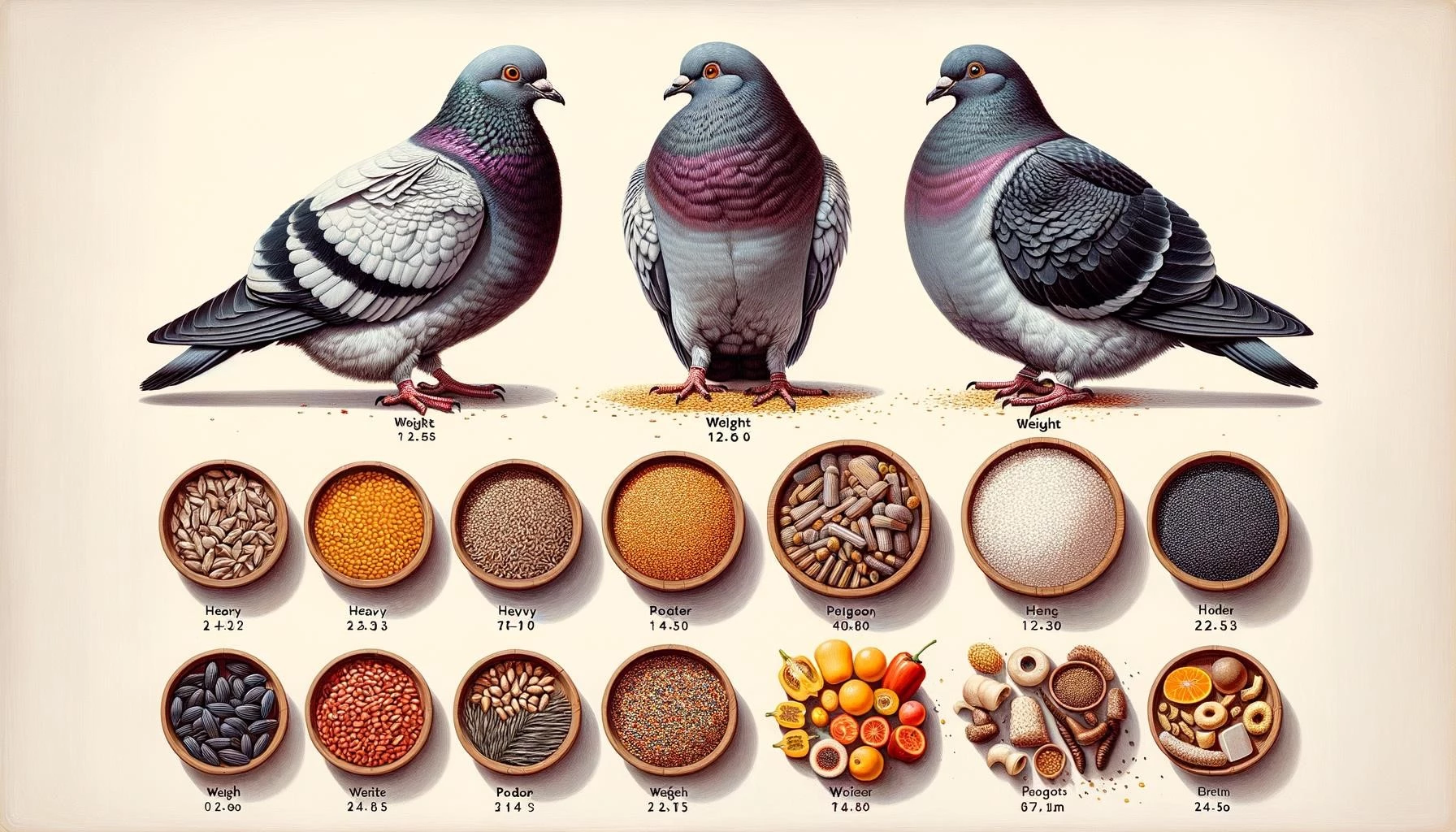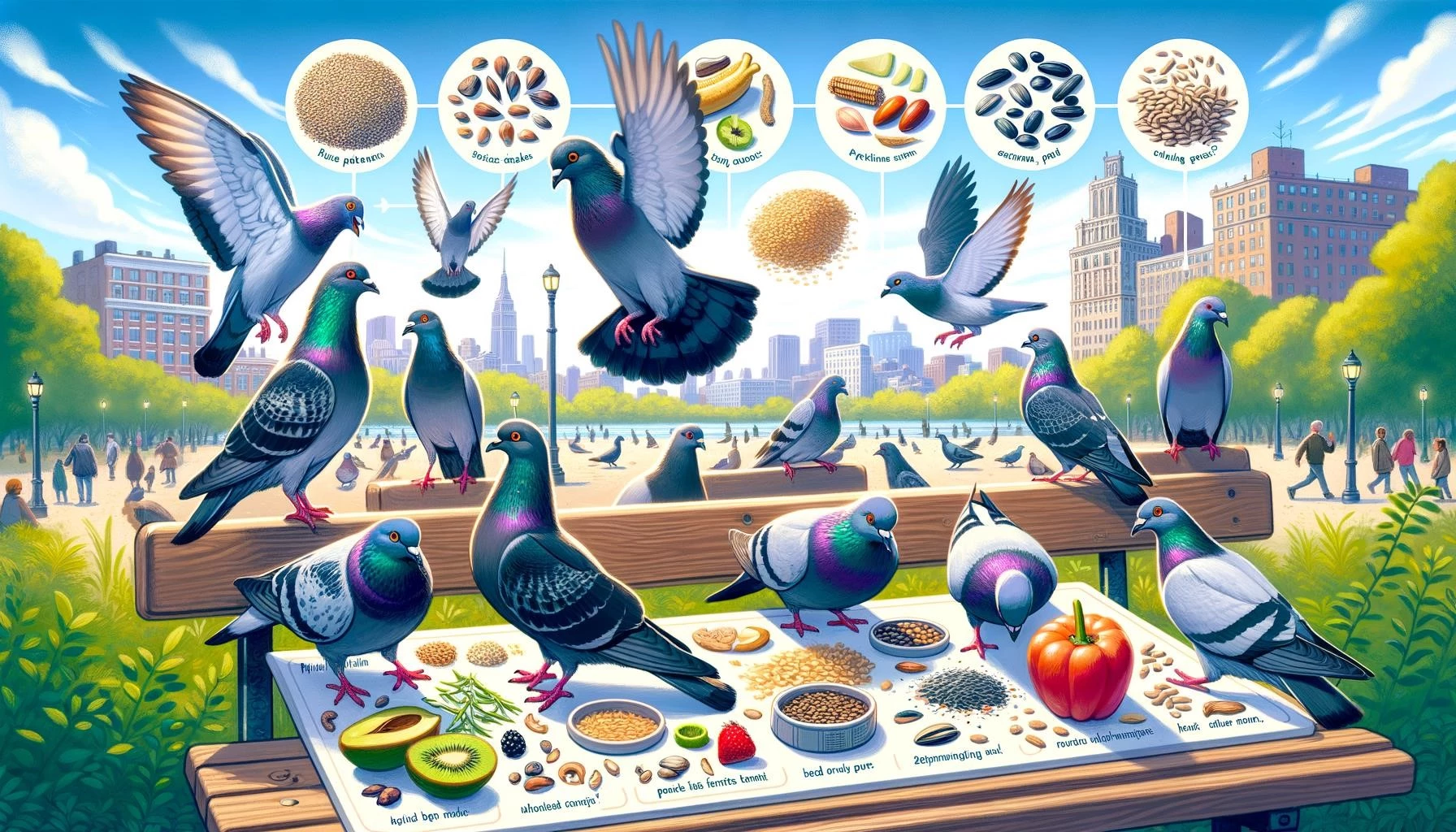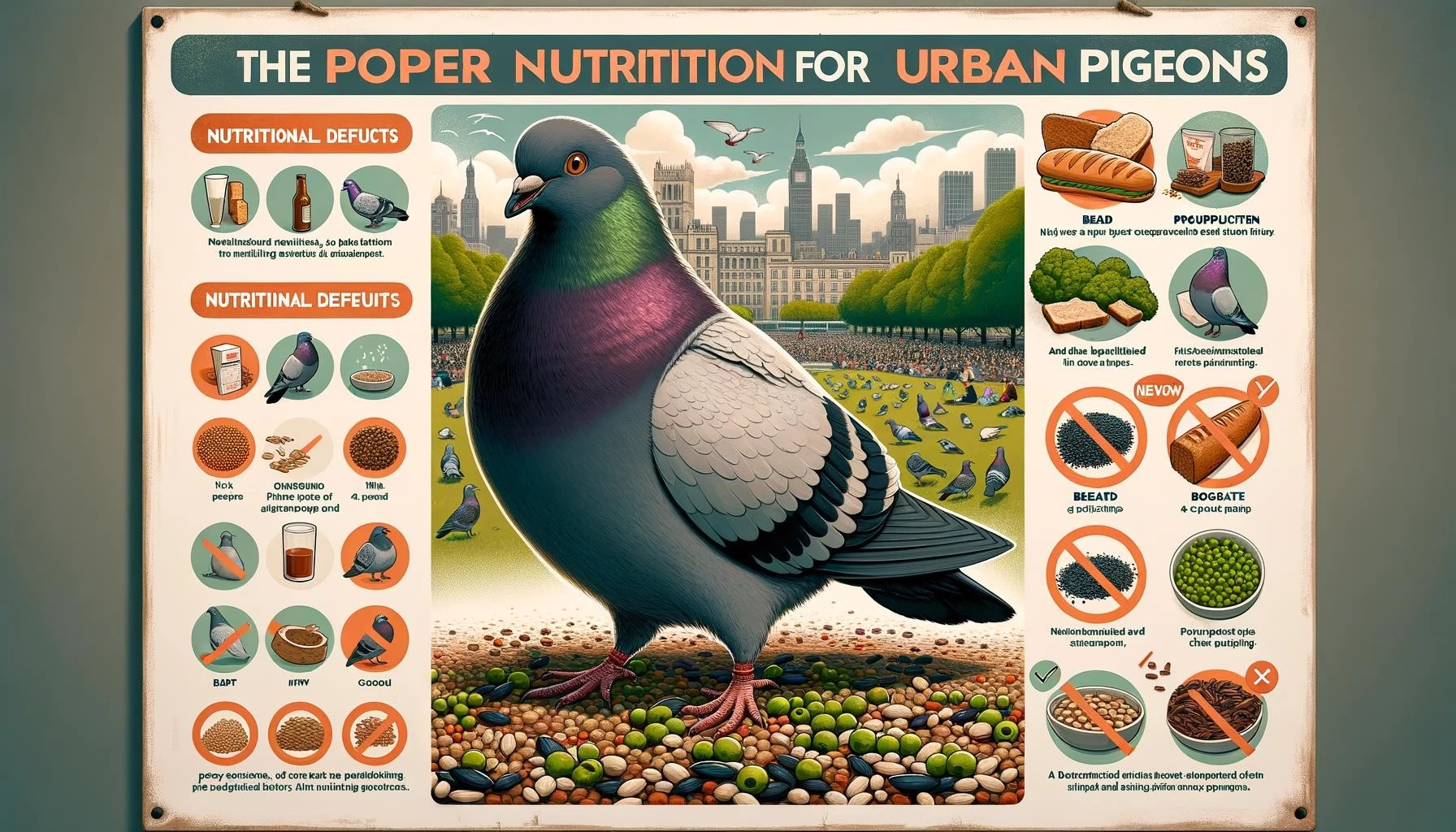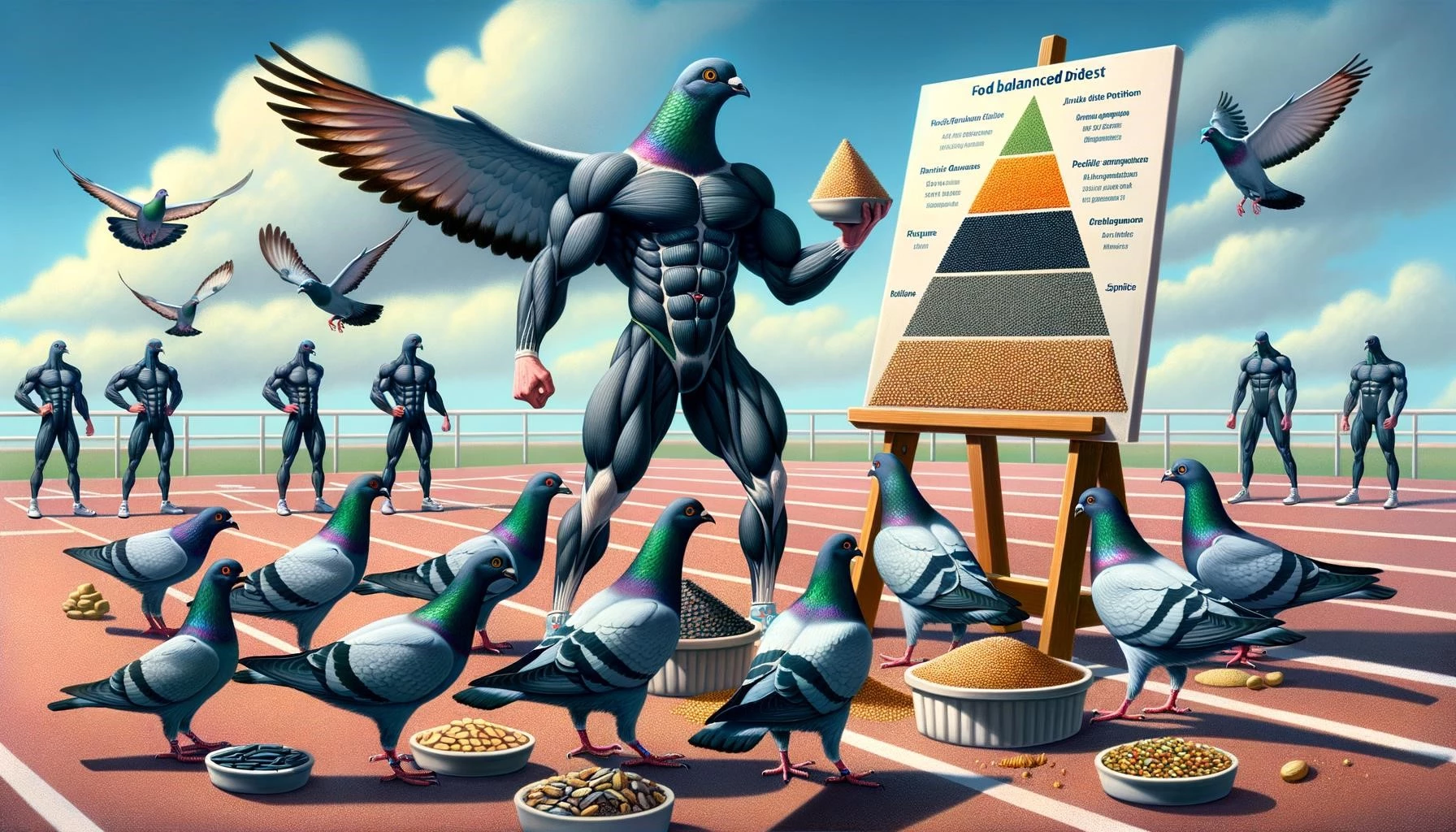Pigeons are common birds found in urban areas and are known for their ability to adapt to various environments. They come in different sizes and have specific dietary needs. In this article, we will explore the weight and diet of pigeons in more detail.
Key Takeaways
- The average weight of adult pigeons ranges from 9 to 13 ounces (250-350 grams) but can vary depending on factors such as breed, sex, and overall health.
- Pigeons primarily feed on grains, seeds, fruits, and vegetables, with specific food preferences varying depending on the pigeon type. Fresh vegetables should be provided daily, while fruit should be offered in small quantities due to their high sugar content.
- Pigeons generally eat around a tenth of their body weight every day, which is equivalent to roughly 35-50 grams.
Pigeon Weight
Adult pigeons typically weigh between 9 and 13 ounces (250-350 grams), but there can be variations depending on factors such as breed, sex, and overall health. The weight of a pigeon is determined by several key elements:
- Breed: Different pigeon breeds have different average weights. Some smaller breeds weigh less than 9 ounces (250 grams), while larger breeds can exceed 13 ounces (350 grams).
- Sex: Male pigeons, also known as cocks, are generally bigger and heavier than female pigeons, known as hens. This size difference is more pronounced in certain breeds.
- Overall Health: A pigeon’s weight can be influenced by its overall health and well-being. Pigeons that are sick or malnourished may be lighter than healthy birds.
Pigeon Diet
Pigeons are omnivorous birds and have a diverse diet that consists of grains, seeds, fruits, and vegetables. However, their preferences for specific foods may vary depending on the pigeon type. It is important to provide a balanced diet to ensure their nutritional needs are met.
Ideally, each day, pigeons should be supplied with a balanced selection of chopped fresh vegetables such as corn, peas, spinach, kale, green beans, parsley, broccoli, carrots, and sprouts. These vegetables provide essential vitamins and minerals for pigeons.
Fruit can also be offered, but it should be limited due to its high sugar content. Pigeons can enjoy small quantities of fruits like berries or apples as occasional treats. However, too much sugar can lead to health issues, so it is important to maintain a balanced diet.
Pigeons also require a source of grains and seeds as part of their diet. A high-quality pigeon feed mix or pellet that is formulated specifically for pigeons can provide the necessary nutrients. These feeds are often available commercially and can be supplemented with grains like corn, peas, or wheat.
It is important to note that water should always be available for pigeons. Clean, fresh water should be provided to ensure proper hydration.
Pigeon Feeding Habits
Pigeons generally eat around a tenth of their body weight every day. This means that an average pigeon weighing between 9 and 13 ounces (250-350 grams) would consume roughly 35-50 grams of food per day. The exact amount of food consumed can vary based on factors such as age, activity level, and individual bird preferences.
Feeding pigeons should be done with care to avoid overfeeding. It is important to monitor their intake and adjust the quantity of food provided accordingly. Pigeons have a tendency to eat more than necessary, which can lead to obesity and health problems.
In summary, pigeons have specific dietary needs and typically weigh between 9 and 13 ounces (250-350 grams). A balanced diet consisting of grains, seeds, fruits, and vegetables, with an appropriate portion size based on body weight, is essential for their well-being and overall health.


